The Garth Brooks Dublin Concerts Debacle – Dancing Between the Lines
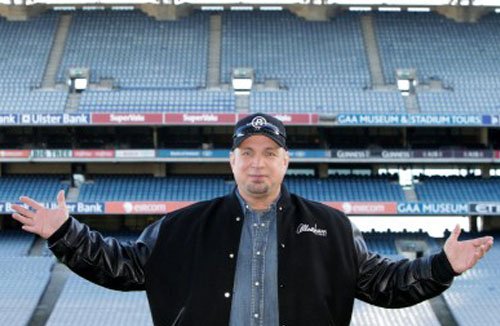 At the Joint Oireachtas (Parliament) Committee on Transport and Communications held on Thursday 17th July 2014 Peter Aiken of Aiken Promotions stated that no concert promoter has ever been refused an events licence by a local authority in Dublin. The committee – made up of members of both Houses of the Irish Parliament – had specially convened to review what had happened to halt a series of five concerts (which had sold out to 400,000 fans of Garth Brooks within hours of going on sale earlier in the year). Near the end of the meeting Peter Aiken was asked if anything could be done to save the concerts – scheduled from 25th to 29th July 2014 in Croke Park Stadium, Dublin. He said it would need to be the subject of an “uncontested judicial review” by the President of the Irish High Court and the decision-making body that would need to unreservedly support the application would be the same one that had made restrictive permit decisions deemed unacceptable to Garth Brooks. It looked like stalemate except the same committee had also questioned key executives from Dublin City Council the previous day and heard the Chief Executive Officer Owen Keegan state that he had (at one point in the process) expressed support for all five Garth Brooks gigs. At another juncture Owen Keegan had also stated however that the council would “vigorously defend” their position (on the restricted permit decisions) in a court. As Owen Keegan was recalled to the committee for a second time in the same week, Ticketmaster had a refund process underway for all five concerts. The Dublin concerts were officially off with no prospect of a revival.
At the Joint Oireachtas (Parliament) Committee on Transport and Communications held on Thursday 17th July 2014 Peter Aiken of Aiken Promotions stated that no concert promoter has ever been refused an events licence by a local authority in Dublin. The committee – made up of members of both Houses of the Irish Parliament – had specially convened to review what had happened to halt a series of five concerts (which had sold out to 400,000 fans of Garth Brooks within hours of going on sale earlier in the year). Near the end of the meeting Peter Aiken was asked if anything could be done to save the concerts – scheduled from 25th to 29th July 2014 in Croke Park Stadium, Dublin. He said it would need to be the subject of an “uncontested judicial review” by the President of the Irish High Court and the decision-making body that would need to unreservedly support the application would be the same one that had made restrictive permit decisions deemed unacceptable to Garth Brooks. It looked like stalemate except the same committee had also questioned key executives from Dublin City Council the previous day and heard the Chief Executive Officer Owen Keegan state that he had (at one point in the process) expressed support for all five Garth Brooks gigs. At another juncture Owen Keegan had also stated however that the council would “vigorously defend” their position (on the restricted permit decisions) in a court. As Owen Keegan was recalled to the committee for a second time in the same week, Ticketmaster had a refund process underway for all five concerts. The Dublin concerts were officially off with no prospect of a revival.
The Irish public has come to know a little more than a smidgen about the running of tours by globally successful music artists from copious insightful news articles about U2 who have now notched-up three decades of Stadium Tour successes: details that might normally only be covered in aficionado music press articles or uncovered during off-beam music talk-media programming have been part of the mainstream news cycle of understanding in Ireland for a long time. Like happens in general business life, success in one place builds yet more success elsewhere and a tour that gets off to a spectacular start will have more chance of gaining better outlying traction than one where the publicity trail recounts tooth-pulling problems or swirling squalls of organisational doubt.
A wide-reaching world tour from any global music artist always needs a lot of momentum if it is going to aspire to continuously play to sell-out audiences and in music event marketing control rooms, the opening nights of a contemporary tour are a bit like how it has also now become in the film industry, where in a world of myriad entertainment competition, it is no longer desirable to get off to a slow-build start. Now it needs to be good, really good with no major hiccups! As the commercial stakes stretch way beyond some opening shows, artists often also weigh in to give it all some super-supportive shape. Sometimes – as anyone listening to the extensive interviews given by Keith Richards on even the most seemingly flower-power of occasions will note – he can be fairly ‘direct’ with peppered references to ‘being ripped off’ or where the brimming financial return from a concert was waived but maybe not universally recognised as such, he is less likely to shrink like a violet than lay it on with the some jumpy layers of jack-flash spread. Sometimes artists are far less ‘direct’ and far more sensitive – that is the way of Garth Brooks.
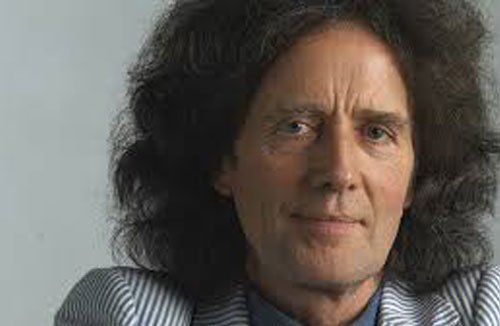 Selling out in one place is no guarantee at all of even treading water somewhere else: Gilbert O’Sullivan is ‘big in Japan’ now and has been so since he was ‘huge’ (there and elsewhere) in the 1970’s but ‘big’ can have all sorts of diluted meanings after it has been filtered through a maze of marketing prisms – for many products and services (not just concerts) it is about balancing a situation where past popularity is no reliable guide to future conquests and also where the mix of advertisements, aimed for playlist airtime and internet conversation can all take on a life of its own – up or down – and with years ahead in a tour, a downer option can sometimes look a little too risky.
Selling out in one place is no guarantee at all of even treading water somewhere else: Gilbert O’Sullivan is ‘big in Japan’ now and has been so since he was ‘huge’ (there and elsewhere) in the 1970’s but ‘big’ can have all sorts of diluted meanings after it has been filtered through a maze of marketing prisms – for many products and services (not just concerts) it is about balancing a situation where past popularity is no reliable guide to future conquests and also where the mix of advertisements, aimed for playlist airtime and internet conversation can all take on a life of its own – up or down – and with years ahead in a tour, a downer option can sometimes look a little too risky.
Just like maximising national revenues is not as simple as unilaterally imposing more national taxes on ‘globally mobile’ companies and people who seem to make ‘a lot of money’ while in Ireland, there are ‘bigger play’ factors to consider for internationally traded music commodities . A world stadium tour for a musician or band might have some constituent elements that are a bit like a Formula One Racing Car team. Prod or poke its car tyres too much and it may lose some pressure, possibly so much that while it might make it off the starting grid, later laps may prove unsettling or worse. In a very long ‘race’, maybe a year down the line – well after the first five tour dates – maybe that is when it will happen? The later ‘under the weather concert’ and somebody who finds the’ story from the start’ and puts two and two together to make five: if you aim to be the best you can be and against the odds you get there and then somebody lets some of the pressure out of your tyres and your Antwerp trucks are still not fully unloaded, then maybe when you think something is “not too late” to change it is for different reasons to those on the in-tray of a permit decider in Dublin.
It is in that context that it may seem that the City Council may not have fully seen where the ‘international fit’ was for the five Garth Brooks concerts when they ‘made an offer’ to ‘co-promote’ additional shows to make up ‘a balance’ for the concerts that had been the subject of an adverse permit ruling by them. Had it been at the end not the beginning of a global tour it might have been all right. Perhaps it is like somebody in a shop queue who when presented with a choice, makes a comment about anything other than price when calculating whether or not they can afford whatever it is? Maybe, on another scale – of an American Middle Eastern Invasion Force– it was like “not rolling out the War Plan” (as a high-ranking military man once said to David McWilliams when he used to be the sole presenter of the Breakfast Show on Newstalk). Maybe it is in the context of dancing comments like these rather than actual ‘straight talk’ commentary that the really important analysis can be found as to why decisions taken worked out one way as opposed to another?
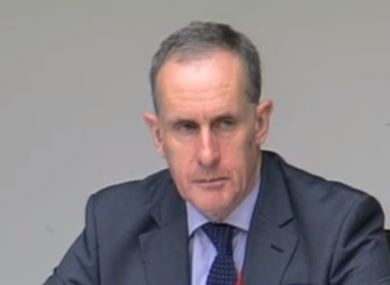
Some of these approaches might perhaps be more rationally thrashed out by bodies in Ireland like Enterprise Ireland (EI) – well before non-reversible decisions are made. While the intervention of the Irish Labour Relations Commission was seen as ‘more about the future of event planning” by interested parties, the often very considerable interaction of all kinds that takes place to ‘win’ far smaller deals than the five concert Garth Brooks series could have been helped if there was an opportunity to bring EI in on these type of ‘international projects of national economic importance’. Reported as being worth approximately €50 million to the greater Dublin economy (with some of the 70,000 inbound Garth Brooks concert tourists also likely to take more extensive holidays in Ireland), that Owen Keegan told the parliamentary committee “the economic loss to the country was not central to the decision-making” and that he was certain that the City Council had “discharged (its) statutory duties” may perhaps have more than a little to do with thinking somewhat influenced by international media comment in publications such as the Washington Post which in its online edition on July 15th wrote that “the conflict stemmed from a bureaucratic snag that could end up costing the city as much as $68 million”.
Another disturbing part of the process involved the unexpected influence of (event planning) objections. While it is recognised in Ireland that there is a right of interested parties (such as statutory bodies or local residents) to object to (event) planning proposals, it seems that – despite the background scenario having been evident for years – there was (the possibility of) significant fraud in the form of bogus objections. The committee heard evidence that the City Council received 384 objections which when acknowledged by post or e-mail, eleven people advised that they had not made an objection submission to the City Council. When the Gardaí were informed and began their own police investigation, the indication that perhaps up to forty per cent of objectors did not meet the “good faith” standards the Council had thought they were working towards was highlighted but at a stage in the process where it could not affect a more favourable decision on the granting of concert permits. That planning legislation would not allow for grounds to appeal decisions, even in the circumstances that prevailed showed up great short-comings in the planning system.
In further questioning from parliamentarians on the reliance of a verification procedure which sent a ‘communications acknowledgement’ to those with e-mail or postal addresses in part to potentially dislodge discrepancies of varying levels of seriousness, parliamentarians indicated that it did not seem like the type of bulwark that would protect the planning integrity of such a prestigious event. Unlike the process for building development planning, there was no fee needed to make an objection but such prospective costs may not have been the off-putting impediment that it could be however as concert promoter Peter Aiken also made indirect reference to a community handball Centre in the vicinity of Croke Park – where management committee members had disassociated the Club from a High Court action proposed to be taken by a club member. Páraic Duffy, the Director General of the Gaelic Athletic Association (GAA), the owner of the Croke Park Stadium also mentioned a meeting between the GAA and “a group” to discuss issues around “a Handball Centre” which was thought to be settled on one particular occasion but “as a key person was in Belfast that day, there was no agreement”. He also made a reference to there being “no one residents group” and that after “ a vigorous consultation process” it was the belief of the GAA that “the majority of residents” were not opposed to the concerts.
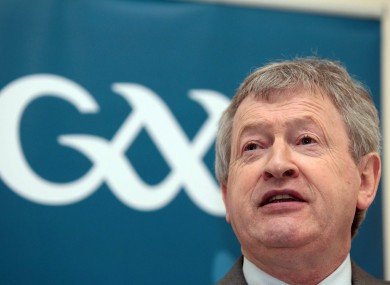
Páraic Duffy also outlined the nature of what their self-proclaimed “vigorous consultation process” had included, as well as other elements of the way the GAA interacts with the “local community” on a year-round basis. While there was a degree of ‘extensiveness’ to it, the presentation did seem to have contrasting perspectives with ‘community objections and relations’ elsewhere in Ireland including in Dublin for similar large concert events that had the potential to irk ‘local residents’. That such issues did not arise in the same sort of ways elsewhere did introduce the hint of an elephant somewhere in the room. That elephant ‘if there at all’, might have been named ‘Bad Blood’ for in part at least, the situation that had arisen – when it comes to be analysed in detail from every conceivable angle – would look at this as one potential cause of the unfolding conflict between those who held the baton for any locally related or proxy cause over perhaps the last decade or more. There may be those who would throw out a ‘too little too late’ line – for at least some occasions in the past – way before the current Garth Brooks Concerts situation and if so they may choose not to focus (even principally) on the Garth Brooks concert application or ‘community relations’ activities in the years beforehand but on ‘other issues’, the type of issues that perhaps keep people active and interested in a supporting a campaigning (residents) group even after leaving the area to live somewhere else must throw up some bigger questions. In that situation, like the goalkeepers that play matches inside Croke Park Stadium, then maybe as part of a lengthy and wide-ranging campaign of which event planning objections to the Garth Brooks Concerts was just one element, the campaigners ‘made themselves look big’ as a tactic and maybe as a tactic – for a time at least – it was seen to work but also maybe that in the cold fading light of a period of five building nights of ‘national celebration’ which ‘caught the imagination of the music industry throughout the world” (as Peter Aiken put it to the committee), that is when it started to unravel but as it ‘unravelled’ it did so too late to be saved. Why?
Some of the reasons that may evolve in the future could do so around an already alluded to ‘starting block’ strategy that was being worked on by Garth Brooks and his Manager Bob Doyle. While Garth Brooks has fans ‘throughout the world’ and was right at the beginning of a global tour that was to last years, it was also the case that he had played only limited concerts in the previous seventeen years and had not released new material. Really when it came down to it there were only two possible countries in the world where the type of enormous ‘splash’ that could kick off a concert run for Garth Brooks could possibly take place – Ireland or the USA. It was not a ‘certainty’ though that the concerts would sell well in Ireland when in late December 2013 Peter Aiken was contacted by Bob Doyle about a seventeen year ‘Comeback Special’ in Croke Park. It was though the only sizeable venue outside the USA, where in 1997 – on the back of extensive airplay on local Irish radio stations mainly outside Dublin – his fans sang his own songs back to him before he sang them himself. That is why he wanted to play his comeback concerts in Ireland, why Garth Brooks as a crowd-connecting artist did not want to play matinees and why he wanted to keep up with what had been re-created in Ireland as an extravaganza that had grown from two concerts of 130,000 people in May 1997 to 400,000 in July 2014. As Bob Doyle watched fans queue for tickets on Dublin’s Grafton Street with Peter Aiken beside him and Garth Brooks soaking up the excitement via cell phone, the waters between Ireland and America warmed just that bit more for the ultimate Irish welcome back to Garth from a section of the crowd whose parents, siblings and friends vinyl record and CD collections had been absorbed by a new generation for some of the same type of reasons that Pink Floyd’s ‘Dark Side of the Moon’ stayed continuously on the US Billboard Chart from 1973 to 1988 and has re-entered on over 750 non-consecutive weeks since then.
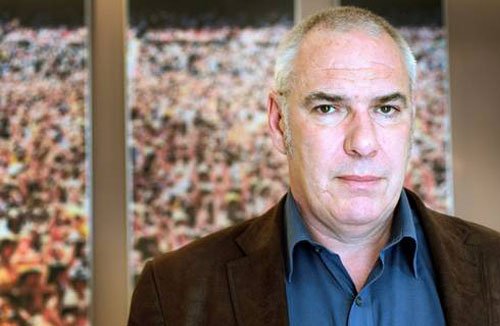
So much more was possible and so much more had been on offer from the fans that were making his comeback. It was not some cold crass commercial event but as Peter Aiken described it to the Joint Committee on Transport and Communications on Thursday 17th July 2014, something akin to globally significant concert events like Roger Waters five night concert run in Argentina or other concerts that are in the world music memory from Bruce Springsteen and Michael Jackson. For those who see music as maybe more of a ‘background thing’, moving back from five concerts for Garth Brooks might be like being asked to go back to base camp when the summit of Everest was in sight and a clear-weather forecast that had not been expected had come into view in the form of a total of 400,000 tickets sold for an overall event that could just be the ‘Irish Woodstock’ or an elusive Irish World Cup tournament win. The last time it happened in Ireland was in 1990 when – lifted by unexpected snow-balling success – Ireland as a nation responded to an Italia ’90 soccer team who led the way against odds which looked so much longer before the dice were thrown. In 1990, just before kick-off for one prominent match on a ‘regular working day’ on the same Grafton Street Bob Doyle had stood on – where commercial rents had risen to as high as some of the most expensive cities in the world during the ‘Celtic Tiger’ – it was quiet as most stores were closed to watch Ireland play in the FIFA World Cup. Some even credit it with being part of the feel-good spark that created the confidence for the Irish economy to climb to the pre-Celtic Tiger position that was subsequently wasted by different economic decisions but for a unique moment it brought together a country that had had so many other divisions.
Mixed as they must be by commercial and economic factors, the case for involving politicians and mediators at all stages of such processes has never been clearer but it was also a process that was too rigid and that had not been designed for times when the white heat needed cool heads who could clearly and concisely articulate a cogent case with the confidence of even taking on the brightest of the country’s barristers in a rigorous and wide-ranging democratic public forum to blast the spirited as well as the legal arguments into the stands far in advance of set-in-stone, no-going back, non-appealable decisions where mediators can only ‘intervene’ with two back-tied hands or courts on matters of law that would not address the core issue that in any case would be ‘vigorously defended’ by key decision-takers.
The nature of this type of event and the organisational planning that must be factored in as events like the Rugby World Cup are applied for, must be flexible and robust enough to respond to those occasions where lengthy gestation periods are not possible and where the nation looks for more national team-playing leadership to line-out than seemed to be on offer for the Irish 2014 Garth Brooks Comeback Concerts.

